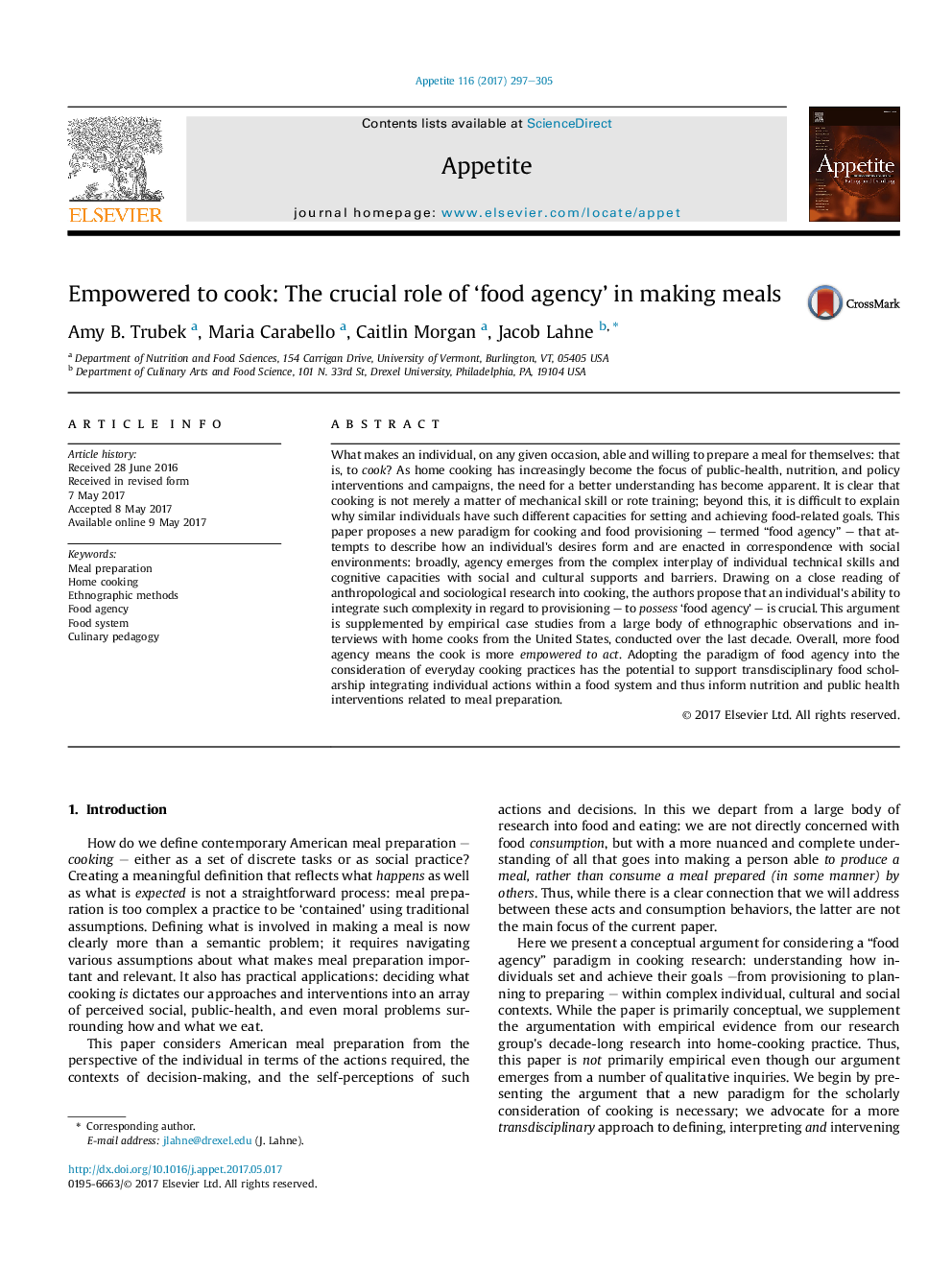| Article ID | Journal | Published Year | Pages | File Type |
|---|---|---|---|---|
| 5044010 | Appetite | 2017 | 9 Pages |
What makes an individual, on any given occasion, able and willing to prepare a meal for themselves: that is, to cook? As home cooking has increasingly become the focus of public-health, nutrition, and policy interventions and campaigns, the need for a better understanding has become apparent. It is clear that cooking is not merely a matter of mechanical skill or rote training; beyond this, it is difficult to explain why similar individuals have such different capacities for setting and achieving food-related goals. This paper proposes a new paradigm for cooking and food provisioning – termed “food agency” – that attempts to describe how an individual's desires form and are enacted in correspondence with social environments: broadly, agency emerges from the complex interplay of individual technical skills and cognitive capacities with social and cultural supports and barriers. Drawing on a close reading of anthropological and sociological research into cooking, the authors propose that an individual's ability to integrate such complexity in regard to provisioning – to possess ‘food agency’ – is crucial. This argument is supplemented by empirical case studies from a large body of ethnographic observations and interviews with home cooks from the United States, conducted over the last decade. Overall, more food agency means the cook is more empowered to act. Adopting the paradigm of food agency into the consideration of everyday cooking practices has the potential to support transdisciplinary food scholarship integrating individual actions within a food system and thus inform nutrition and public health interventions related to meal preparation.
